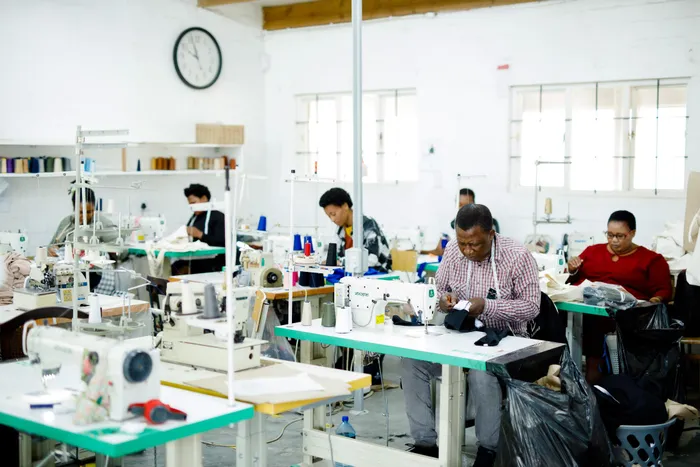New sewing hub in the works for Masiphumelele

The new Sewing Café in Masiphumelele gives women the tools and support they need to start their own businesses and follow their dreams.
Image: Supplied
A new sewing hub in Masiphumelele may not be open yet, but it’s already sparking big dreams.
The Sewing Café, a skills development non-profit, is fundraising for a professionally equipped, pay-as-you-go sewing centre in the heart of Masiphumelele.
The idea is simple: to provide graduates and creators with access to industrial sewing machines and a safe, supportive space to work, removing one of the biggest barriers to starting a small clothing business.
Founder and director Athene Knemeyer, who expanded the original training programme in 2013, says this next step is about real opportunity. “A lot of our graduates don’t have reliable machines or safe spaces to work at home. This planned centre would solve both problems and offer a vital bridge between training and entrepreneurship.”
The envisioned hub will feature 10 industrial sewing machines, two overlockers, and several domestic machines for those still learning. It will also offer technical support, rental patterns in all sizes, affordable deadstock fabrics, and referrals to pattern makers and specialist equipment.
“It’s not just for our alumni,” says Ms Knemeyer. “We want it to be open to anyone in the community with sewing skills and a dream. I imagine people from across the valley working side by side, sharing ideas, and building something new together.”
Born in Hout Bay, Ms Knemeyer’s passion for fashion came from her mother, a designer who once taught at the original sewing programme. “Coming of age with South Africa’s democracy made me acutely aware of the damage apartheid caused. Skills development and job creation aren’t just economic necessities — they’re moral imperatives. This work gives my life purpose.”
Since 2013, The Sewing Café has provided free six-month accredited sewing courses to unemployed women in Ocean View and Masiphumelele. The programme, now SETA-registered, gives around 40 women a year a qualification recognised under the National Qualifications Framework (equivalent to matric levels), opening doors that were previously shut.
For 29-year-old Lithakazi, a graduate who once struggled to find steady domestic work, the programme changed everything. “Now I earn a salary, I work with pride, and my children are secure. That’s what matters most to me,” she says.
But as Ms Knemeyer explains, training isn’t enough on its own. “We simply can’t employ everyone we train, but we can give them the tools to start something for themselves. That’s what this hub is for.”
The public can also play a role by sponsoring a machine, donating materials, or placing orders through The Sewing Café’s small production team, which makes school uniforms and other garments for local businesses.
“Instead of buying clothes made overseas, support local,” says Ms Knemeyer. “Every order helps us train more women and grow the impact.”
To find out more, make a donation, or get involved, visit www.thesewingcafe.co.za.
Related Topics: